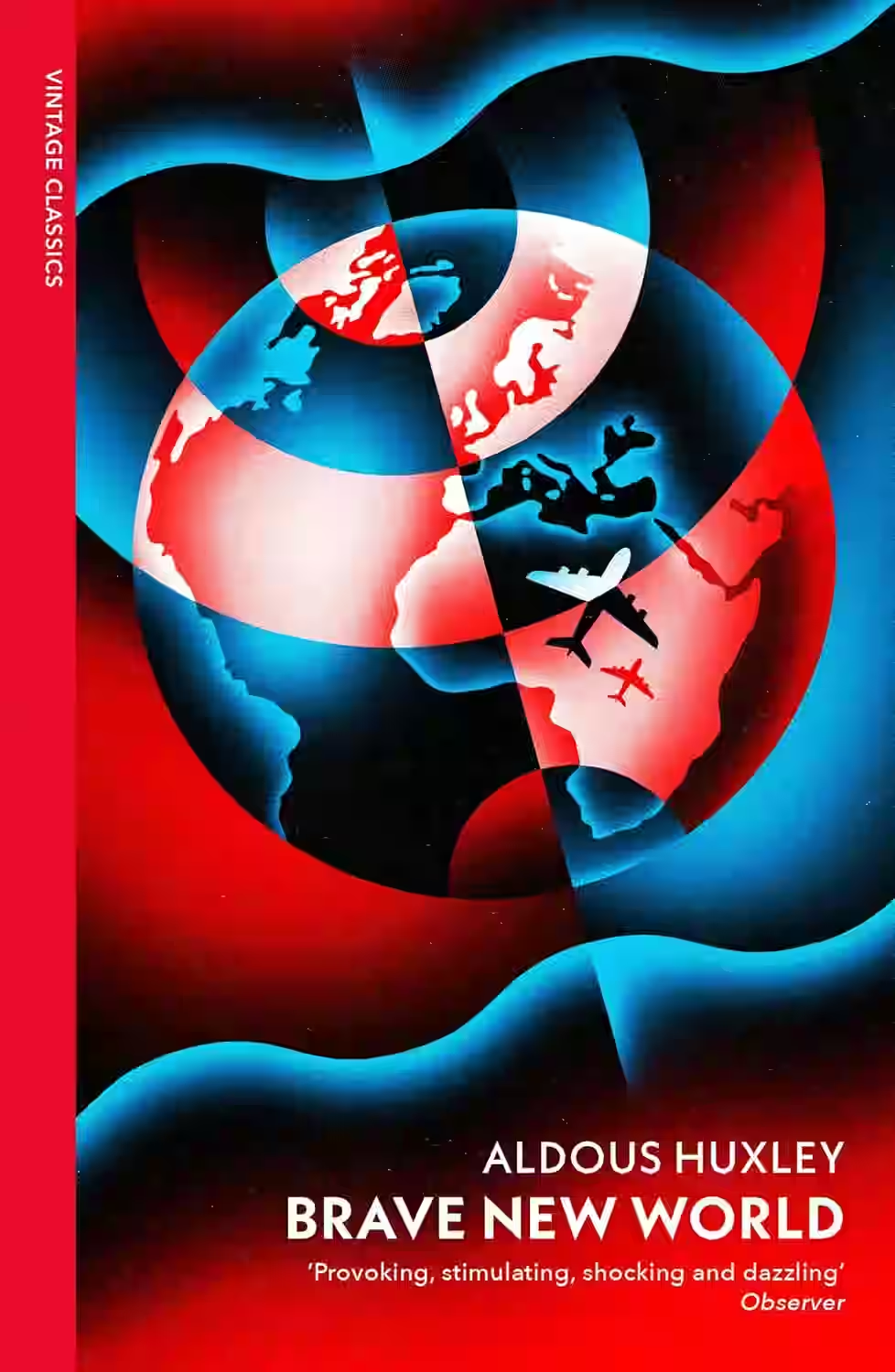
Aldous Huxley’s Brave New World is a landmark dystopian novel exploring a future where technological control, genetic engineering, and mass conformity replace individual freedom. Written in 1932 during the rise of fascism, it imagines a world where humans are bred for purpose, sedated by pleasure, and conditioned to obey. Huxley, a visionary thinker and spiritual seeker, critiques the loss of humanity in pursuit of stability and control. His chilling portrayal of a society numbed by entertainment, pharmaceuticals, and propaganda remains strikingly relevant today. Brave New World endures as both a powerful literary achievement and a timeless warning about unchecked technological progress.
About Aldous Huxley
An English writer and philosopher, best known for his dystopian novel Brave New World. His works critically examined societal structures, technological advancements, and the human condition, often through satirical or speculative lenses. Huxley explored themes of individualism, drug use, spiritual enlightenment, and the potential pitfalls of scientific progress. His profound intellect and ability to envision future societies made him a significant voice in 20th-century literature and a prescient observer of cultural trends.
Other Books by Aldous Huxley
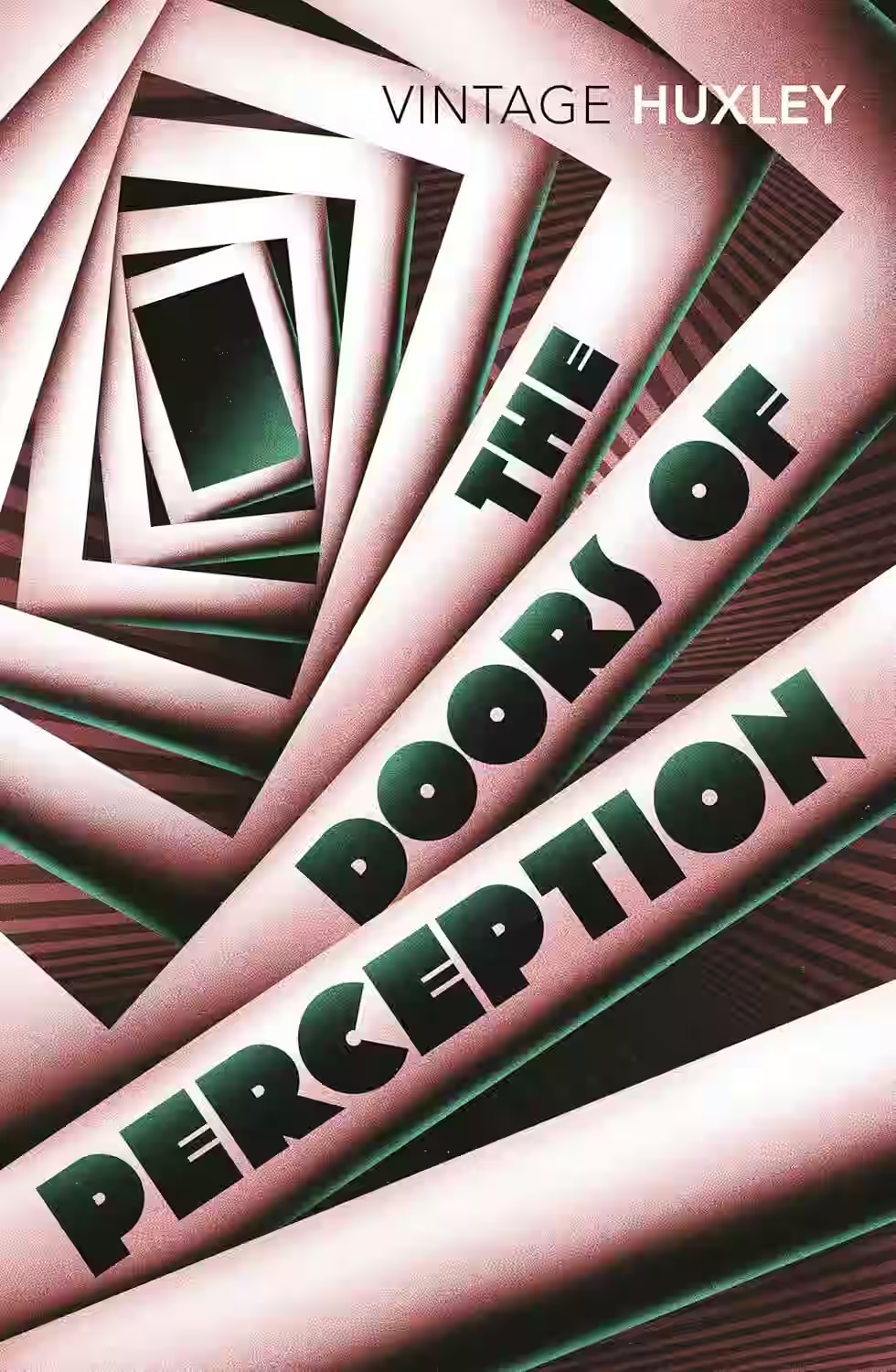
The Doors of Perception
In 'The Doors of Perception' by Aldous Huxley, the author takes readers on a captivating journey through the exploration of consciousness and altered states of perception. Huxley delves into the effects of mescaline on the human mind, offering profound insights into the nature of reality, art, and spirituality. Through a blend of philosophical musings and personal experiences, he challenges conventional perceptions of the world and invites readers to question the boundaries of their own consciousness. This thought-provoking book not only explores the potential of psychedelic substances but also delves into deeper existential questions about human perception and the search for meaning.
Similar Books
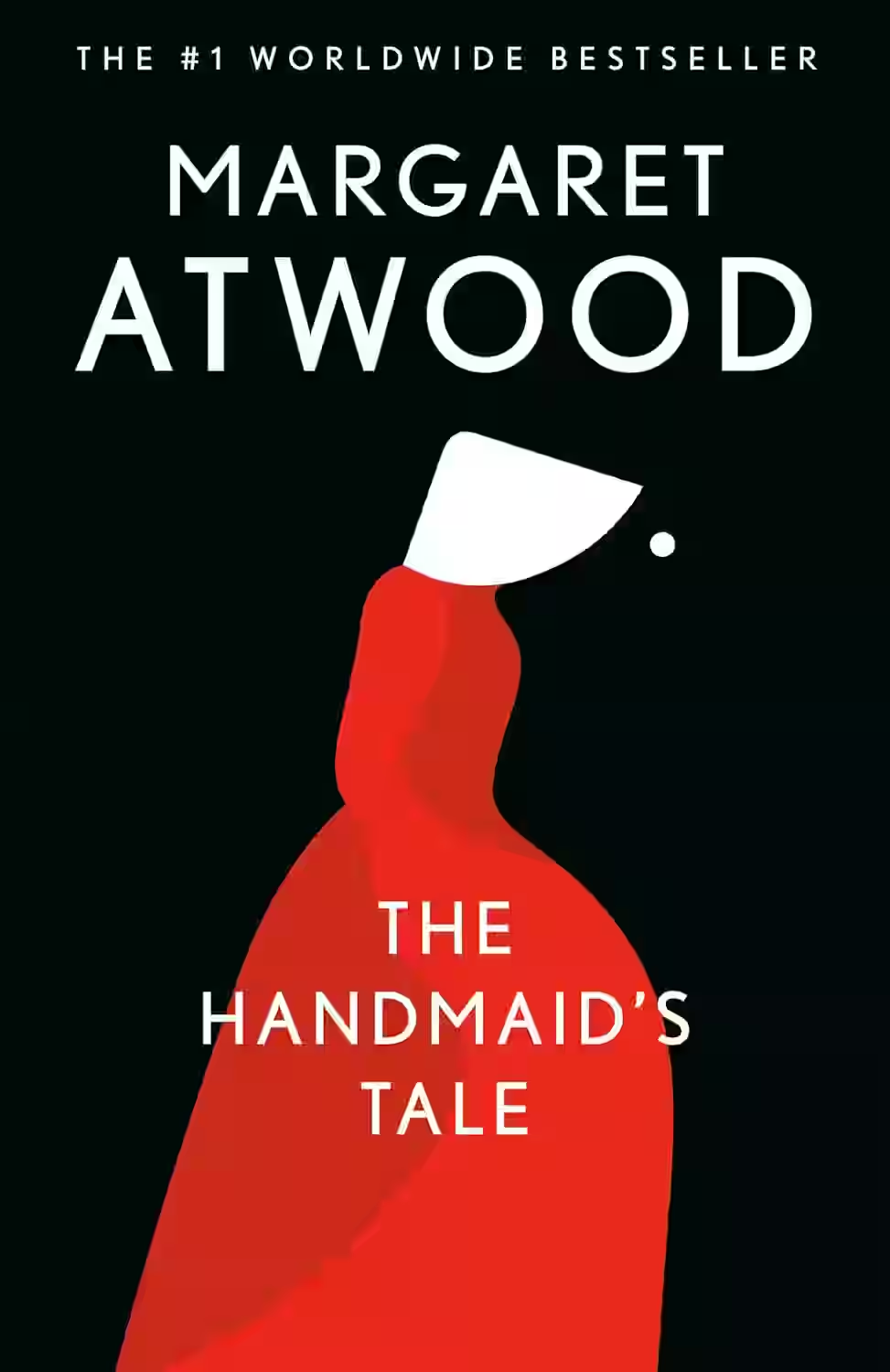
The Handmaid's Tale
Series: The Handmaid's Tale (#1)
In the Republic of Gilead, a theocratic regime has stripped women of their rights and forced them into distinct social classes. Through the eyes of Offred, a Handmaid assigned to bear children for elite couples, we see a chilling exploration of gender, power, and resistance in a society that feels disturbingly possible.
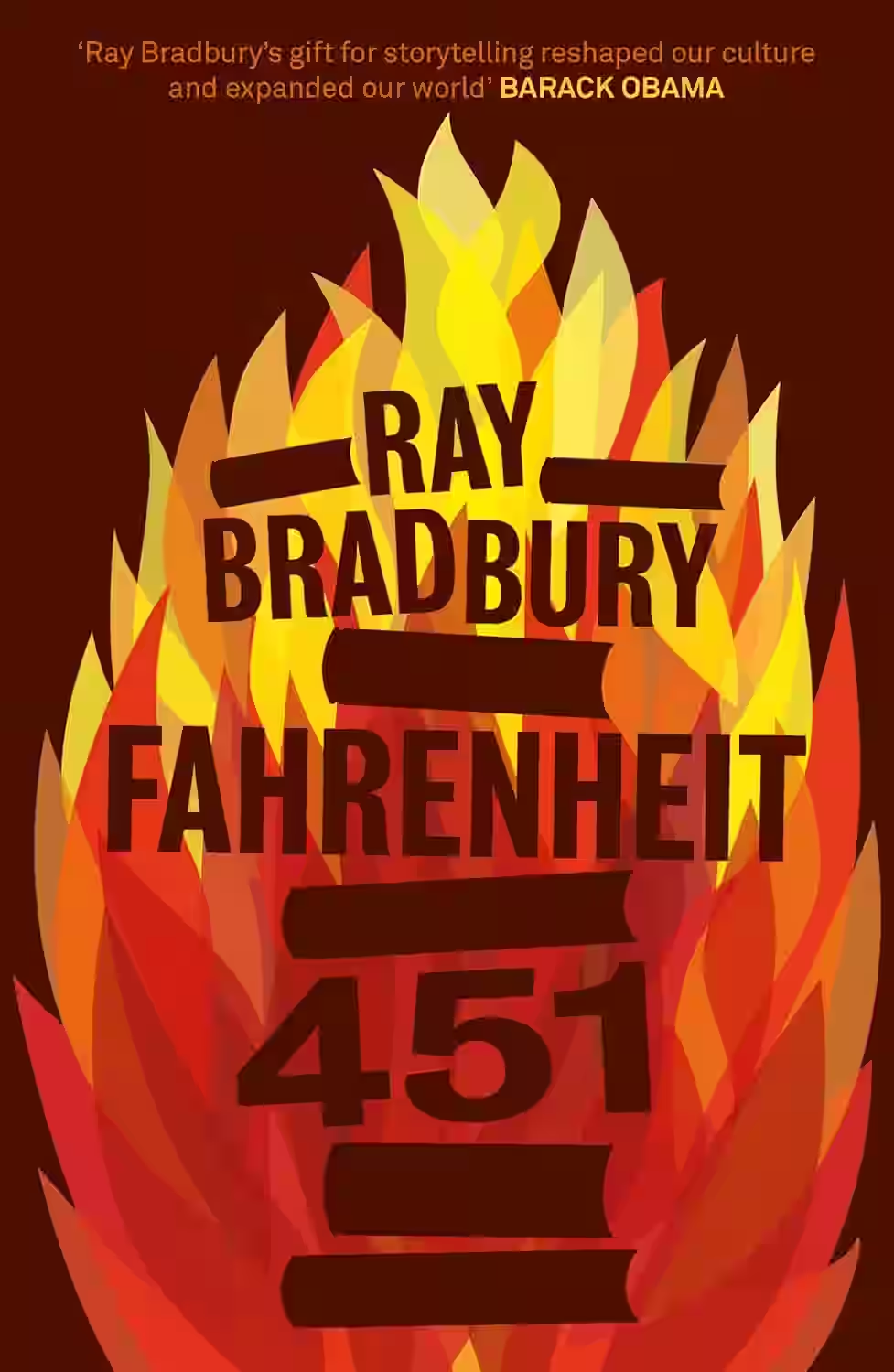
Fahrenheit 451
by Ray Bradbury
Ray Bradbury's "Fahrenheit 451" is a profound dystopian novel that delves into the consequences of a society bereft of critical thinking and free expression. Set in a future where books are banned and 'firemen' burn any that are found, the narrative follows Guy Montag, a fireman who begins to question his role in suppressing knowledge. The novel explores themes of censorship, the dehumanizing effects of technology, and the power of literature to inspire change. Bradbury's incisive commentary on conformity and intellectual repression remains remarkably pertinent, making it a timeless critique of society's foibles and the resilience of the human spirit in the pursuit of truth.
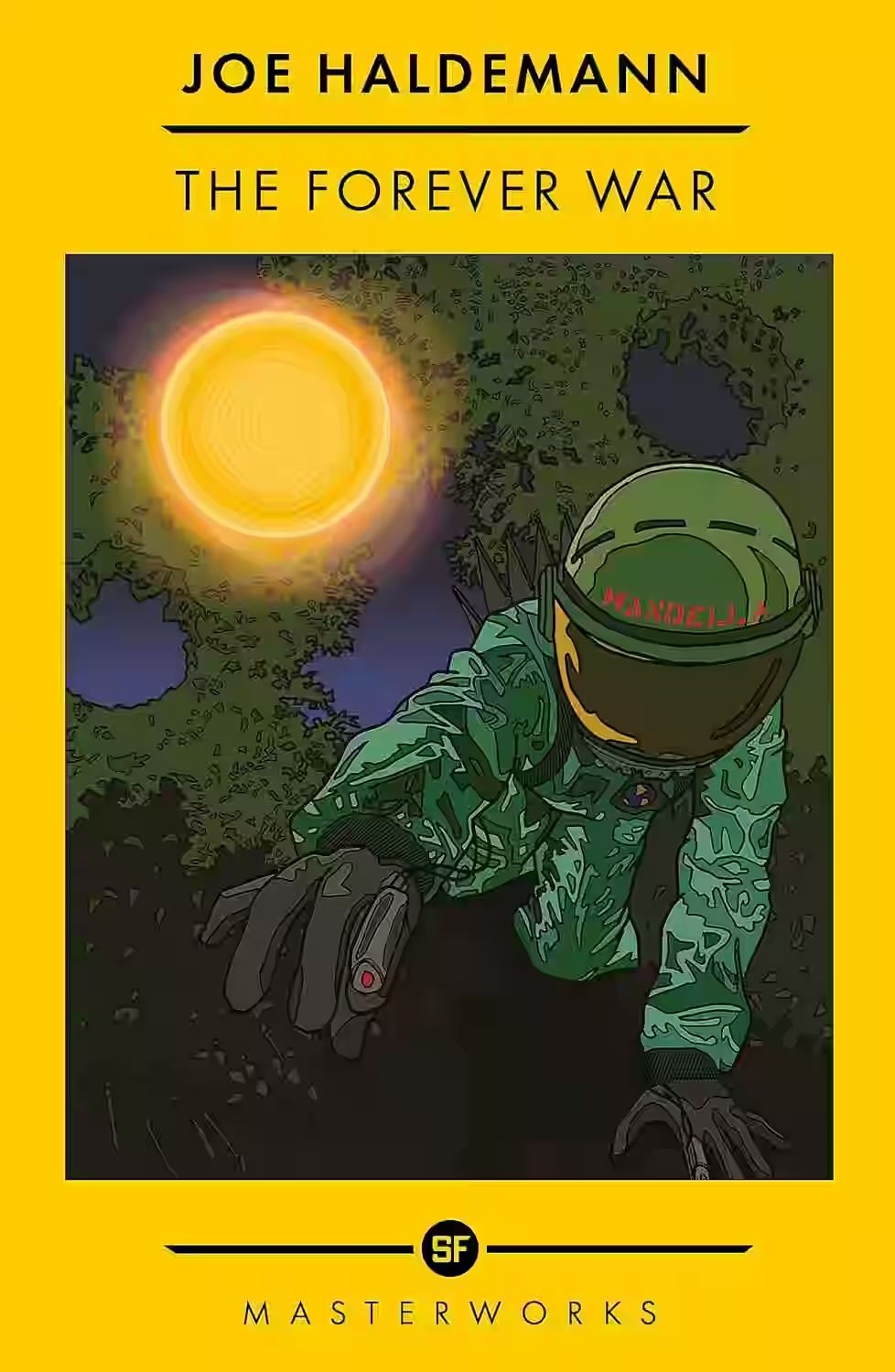
The Forever War
by Joe Haldeman
Joe Haldeman's "The Forever War" is a seminal piece of science fiction that delves into the harrowing experiences of interstellar warfare, juxtaposed against the passage of time. The novel follows William Mandella, a soldier drafted to fight in an endless war against an alien species known as the Taurans. As Mandella battles across the universe, time dilation effects result in decades passing on Earth, leaving him disconnected from humanity and culture. The book explores themes of isolation, the futility of war, and the struggles of returning soldiers. Haldeman, drawing on his own experiences in the Vietnam War, crafts a powerful narrative that remains a poignant and thought-provoking commentary on conflict and human perseverance. Through its reflections on the relentless passage of time and changing societies, "The Forever War" challenges readers to consider the impact of war on the soldier's psyche and the societal changes they must face upon returning home.
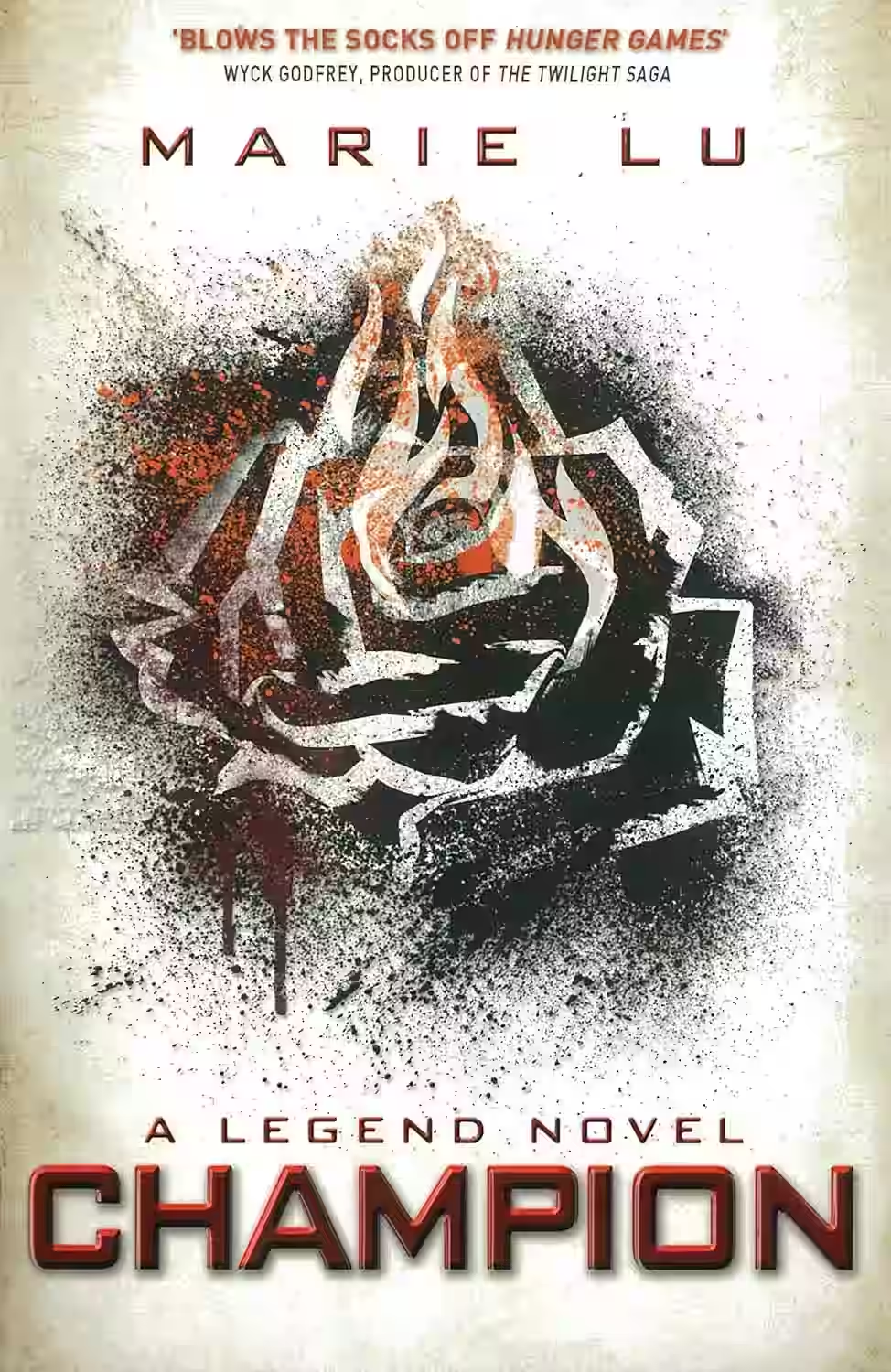
Champion
by Marie Lu
Series: Legend (#3)
In 'Champion' by Marie Lu, the electrifying conclusion to the 'Legend' series, readers are plunged back into the dystopian world of June and Day, two star-crossed lovers caught in the midst of political turmoil and social unrest. As tensions rise and battles escalate, the lines between friend and foe blur, forcing the protagonists to make heart-wrenching decisions that will determine the fate of their society. With themes of sacrifice, loyalty, and the enduring power of love, 'Champion' delivers a gripping tale of rebellion and redemption that will keep readers on the edge of their seats until the very last page.